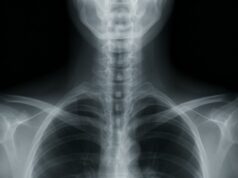
Workplace injuries create significant challenges. They frequently necessitate substantial medical treatment and recovery periods, preventing income generation. Workers’ compensation assists injured employees with medical expense coverage during work inability periods. All employees receive protection through the workers’ compensation system, providing immediate assistance for income replacement and healthcare expenses.
Workers’ compensation benefits both employers and employees. Pennsylvania workers’ compensation provides employees with assurance regarding post-injury support regardless of fault determination; litigation remains unnecessary for compensation recovery, particularly appropriate for minor workplace injuries.
Collecting Workers’ Comp Waives the Right to Sue
Generally, individuals receiving workers’ compensation benefits cannot initiate personal injury litigation against employers. This restriction stems from the “exclusive remedy” legal principle, establishing that after accepting workers’ compensation benefits from a provider, recipients relinquish rights to pursue additional compensation from that provider through alternative means.
Pursuing legal action against employers after receiving their workers’ compensation insurance benefits would constitute legal redundant compensation. This restriction applies in most situations. However, as with numerous legal principles, exceptions exist.
What Happens If I File Both a Personal Injury and Workers’ Comp Claim?
Experienced accident attorneys explain that simultaneous workers’ compensation and personal injury claims from identical incidents create parallel legal processes: one within workers’ compensation systems and another within personal injury frameworks.
Typically, workers’ compensation claims permit recovery limited to past/future medical expenses and work-capacity-related damages. For substantial injuries, a workers’ compensation attorney consultation proves advisable for navigating this specialized process.
A knowledgeable workers comp lawyer recognizes personal injury claims encompass a broader scope than workers’ compensation matters, permitting recovery across wider damage categories beyond medical expenses and employment capacity. Specifically, personal injury claims against negligent third parties potentially include compensation for:
- Past and future medical expenses
- Past and future income loss
- Earning capacity reduction
- Emotional damages including pain and suffering
- Physical bodily impairment
- Direct expenses
- Additional compensable damages
Legal Exceptions to Workers’ Comp Lawsuit Limits
Individuals may seek legal action against employers who lack adequate workers’ compensation coverage. However, the law for most states establishes minimum insurance requirements for all employers.
Another situation permitting both workers’ compensation benefits and employer litigation involves demonstrating deliberate harm. This requires proving that employer actions exceeded negligence and caused injury purposefully.
For instance, physical altercations between business owners and employees potentially create circumstances allowing personal injury claims while accepting workers’ compensation benefits. Such situations extend beyond standard workers’ compensation coverage, creating additional employer liability.
The final exception involves workplace injuries resulting from employer OSHA violations. When OSHA determines that regulatory violations contributed to injuries, legislation permits pursuing additional damages through litigation following workers’ compensation claims. This provision encourages both workers’ compensation insurance maintenance and regulatory compliance.
Difference Between Workers’ Comp and Personal Injury Claims
Workers’ compensation and personal injury claims primarily differ regarding fault determination requirements and available compensation types. Workers’ compensation provides benefits for work-related injuries and occupational illnesses regardless of causation.
Workers’ compensation eligibility requires a no-fault demonstration. Conversely, personal injury claims require demonstrating third-party fault for injuries or illnesses, someone beyond the employer or colleague.
Workers’ compensation benefits cover medical treatment and partial wage replacement but exclude pain and suffering compensation. Alternatively, Personal injury claims potentially include pain and suffering, emotional distress, and additional subjective damages. Personal injury compensation additionally covers injury-related medical expenses and complete lost income value.
Endnote
Workers’ compensation delivers fundamental protection following workplace incidents, yet it potentially preserves additional legal recovery options. Critical understanding involves identifying third-party responsibility and the jurisdictional statutory framework governing compensatory remedy interactions. Following occupational injuries, professional legal consultation enables comprehensive recovery option identification, preventing potential financial shortfalls through overlooked compensation channels.






